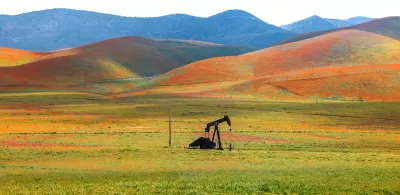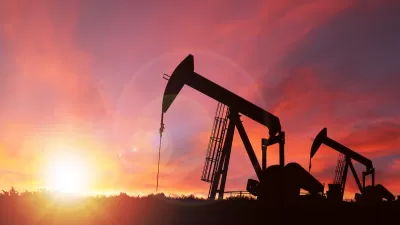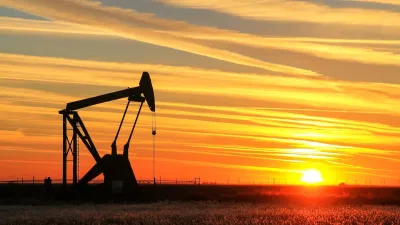Taxpayers, federal agencies, and tribal governments are working to address Arizona's orphaned oil and gas wells, which pose environmental and health risks, while advocates call for greater accountability from oil and gas companies.

Arizona is home to approximately 200 orphaned oil and gas wells, which are abandoned wells with no identifiable owner. These wells leak methane and other pollutants, posing serious environmental and health risks, particularly to nearby communities. They can contaminate groundwater, harm wildlife, and contribute to air pollution. Federal, state, and tribal agencies are responsible for the costly task of locating, capping, and remediating these wells, which are a burden on taxpayers.
Efforts to address orphaned wells include federal funding initiatives like the Biden-Harris administration’s $25 million grant to Arizona’s Department of Environmental Quality (ADEQ) for its Orphaned Oil and Gas Well Program. This program aims to identify and remediate orphaned wells across the state by December 2025, with 80 wells already located and 38 prioritized for plugging. The Navajo Nation has also received $5 million to address 19 wells, alongside a memorandum of understanding with the Department of Energy to further remediation efforts on tribal lands.
Advocates argue that oil and gas companies, not taxpayers, should bear the financial responsibility for plugging orphaned wells. Organizations like the Well Done Foundation emphasize holding companies accountable to prevent reliance on public funds. While the funding helps mitigate immediate risks, lawmakers like Rep. Raúl Grijalva stress that this is not a sustainable solution. The need for systemic reform to ensure companies clean up after themselves remains central to solving the problem.

Alabama: Trump Terminates Settlements for Black Communities Harmed By Raw Sewage
Trump deemed the landmark civil rights agreement “illegal DEI and environmental justice policy.”

Planetizen Federal Action Tracker
A weekly monitor of how Trump’s orders and actions are impacting planners and planning in America.

Why Should We Subsidize Public Transportation?
Many public transit agencies face financial stress due to rising costs, declining fare revenue, and declining subsidies. Transit advocates must provide a strong business case for increasing public transit funding.

Understanding Road Diets
An explainer from Momentum highlights the advantages of reducing vehicle lanes in favor of more bike, transit, and pedestrian infrastructure.

New California Law Regulates Warehouse Pollution
A new law tightens building and emissions regulations for large distribution warehouses to mitigate air pollution and traffic in surrounding communities.

Phoenix Announces Opening Date for Light Rail Extension
The South Central extension will connect South Phoenix to downtown and other major hubs starting on June 7.
Urban Design for Planners 1: Software Tools
This six-course series explores essential urban design concepts using open source software and equips planners with the tools they need to participate fully in the urban design process.
Planning for Universal Design
Learn the tools for implementing Universal Design in planning regulations.
Caltrans
Smith Gee Studio
Institute for Housing and Urban Development Studies (IHS)
City of Grandview
Harvard GSD Executive Education
Toledo-Lucas County Plan Commissions
Salt Lake City
NYU Wagner Graduate School of Public Service





























